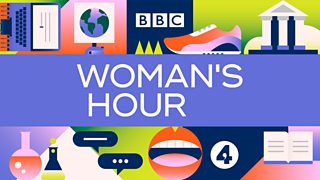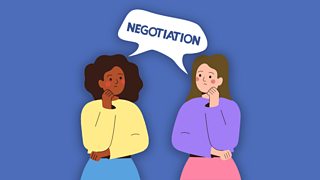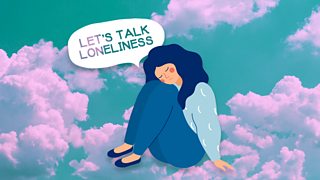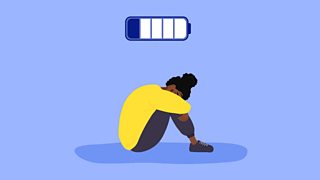‘Be more toddler’: Six ways we can channel our inner toddler to live a happier life

Toddlers often have a bad reputation - the words ‘tantrums’, ‘terrible twos’ and ‘threenager’ might spring to mind.
But is there more that we can learn from toddlers than we realise? Dr Hasan Merali, paediatric doctor and Associate Professor at McMaster University, certainly thinks so.
Dr Merali joined Emma Barnett on ´óÏó´«Ã½ Radio 4’s Woman’s Hour to explain why he thinks toddlers can help us become happier and less stressed, as outlined in his book, Sleep Well, Take Risks, Squish the Peas.
‘The bad reputation toddlers get is unfair’
“When they’re having their tantrums, that's when they're getting attention,” says Dr Merali. “But if we put it into perspective, those tantrums’ median time is only about three minutes and they're awake for 11 to 12 hours a day. So, what I like to focus on is how they're spending those other hours of their day, and that's laughter, playing, building relationships, spending time, learning.
“I think toddlers do a lot of things right, and if we look at the data around adults who act in certain ways like toddlers, you'll see that it really helps us be happier and less stressed.”
So, what can we learn from toddlers?
Keep reading for six tips on how to channel your inner toddler and hopefully lead a happier, healthier life...
1. Laugh more
“Being around a little person can be challenging because they're so active and they want to do so many different things and it's tiring. But in the last two years, since my daughter became a toddler, I have never laughed as much. Every day is filled with laughter and games.
“Not only does laughter make us feel more relaxed and less stressed, but it also helps us learn better and develop relationships. Unfortunately, as we get older, research has shown that we go over a ‘humour cliff’ where the amount we laugh each day falls off.
“When toddlers are left to themselves, they laugh nearly one time per minute! Everything is funny to them, from a mispronounced word to placing an object on their head to making a silly face. They want other people to laugh because they know that’s the best way to make friends.”
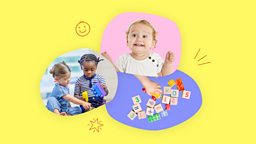
2. Say 'no'
"There is no group of people that has a more energetic and firmer ‘no’ than toddlers,” says Dr Merali. “As they learn to set boundaries, and learn the power that comes with this word, they do not hold back when using it.
“There is an important lesson here for adults for two reasons... First, adults have a bias to saying ‘yes’ when asked to do tasks, and second, we notoriously underestimate the time it will take to do a task.
“Adults feel there is a social pressure to say ‘yes’ to these tasks, but eventually, we take on too much and feel stressed and overwhelmed. Not all of us are in positions of privilege to be able to say no to tasks or choose which projects we undertake, but for those of us who are, the toddler ‘no’ (modified to be a bit more polite, of course) is a tool that can help us become less overwhelmed and stressed.”
3. Be kind to others
“The idea that toddlers are not good at sharing, and they need to be taught this, is completely false. There is a mountain of data from research with hundreds of toddlers in various settings which shows how kind and generous they truly are.
“They act kindly toward people they know, strangers, animals, and even robots. They are kind when another person acts selfishly or is antisocial. Experiments done analysing facial expressions of toddlers demonstrates the deep sense of happiness they get from giving.
“And for adults, there is another important lesson here because we can also tap into that deeper sense of happiness when we give. This goes beyond in-the-moment pleasure and gets us closer to fulfilling our true nature, termed eudaemonic happiness. While donating money and volunteering in a formal setting are excellent ways to give, small, simple acts directed at helping others are all it takes to give us a happiness boost, and at the same time provide a benefit to another person.”
4. Adopt a simple sleep routine
“Getting really good sleep is probably the foundation of wellness,” says Dr Merali. “If there's one takeaway of what people can do to improve their lives, it’s getting better sleep. The toddler sleep routine is perfect, and it works so well for adults because it's so simple.
“It's just three easy steps... One, an hour before you want to go to sleep, you take a hot bath or shower. Number two, for toddlers, you apply lotion. That can be applying lotion or some other hygiene activity. And three, every toddler needs to read a book before bed. Reading is another thing they excel at. None of this involves any screen time. That's a nice way to end the toddler bedtime routine, is easily adaptable for adults and definitely helps with sleep.”

5. Engage in 'self-talk'
"I have a three-year-old and when I go pick her up at pre-school and I'm walking down the halls I hear a lot of laughter and encouragement,” says Dr Merali. “But when I see toddlers by themselves, they're doing a lot of things out loud. Little Julie's putting on her mitts and saying: ‘Julie can do it.’ And Colton's looking down at his boots and they're on the wrong way, so he says: ‘Oh, Colton did this wrong’. This idea of self-talk is a way to decrease stress in anxiety provoking situations.
“There are studies with adults where they're in MRI machines. When talking to yourself in third person, we see that the areas of the brain that are involved with emotional reactivity are decreased. So self-talk is one of these wonderful lessons we can learn from toddlers.
“And toddlers are much more positive. Adults often get into the cycle of negative self-talk, and I think one of the best strategies that we can do is give ourselves more positive self-talk. An easy way to do it is when you're down or angry with yourself, think about talking to yourself as a good friend instead. You'll notice that difference in how you talk to yourself. That's one another simple change that we can make."
6. Eat mindfully
“Toddlers are the original mindful eaters. They're very in tune with their bodies and it's very difficult to make a toddler overeat. When they're full, they just play with their food or sometimes, and this is another great toddler lesson, they say no.
“They know when they're getting full and they stop eating. They don't eat for all the reasons that adults do, often because of boredom, because they're with another person, because they're in front of the tv. I think that's another great lesson from toddlers, is how to listen to our bodies a bit better when we're eating.”
‘I’m not arguing that they’re perfect’
“They do have a lot of issues that they're slowly working on,” says Dr Merali. “That's just part of their development. They'll get there. What I want to say is that we as adults should be looking to how we used to act and how toddlers act. And I think that will certainly help us a lot in our own lives.”
So, will you be taking on some of these changes to improve your happiness and reduce stress levels?
You can hear Dr Hasan Merali’s full interview on ´óÏó´«Ã½ Radio 4’s Woman’s Hour on ´óÏó´«Ã½ Sounds - it's the episode from 8 April.
Join the conversation on and @bbcwomanshour.
